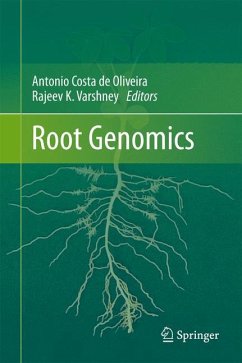With the predicted increase of the human population and the subsequent need for larger food supplies, root health in crop plants could play a major role in providing sustainable highly productive crops that can cope with global climate changes. While the essentiality of roots and their relation to plant performance is broadly recognized, less is known about their role in plant growth and development. "Root Genomics" examines how various new genomic technologies are rapidly being applied to the study of roots, including high-throughput sequencing and genotyping, TILLING, transcription factor analysis, comparative genomics, gene discovery and transcriptional profiling, post-transcriptional events regulating microRNAs, proteome profiling and the use of molecular markers such as SSRs, DArTs, and SNPs for QTL analyses and the identification of superior genes/alleles. The book also covers topics such as the molecular breeding of crops in problematic soils and the responses of roots to a variety of stresses.
From the reviews:
"This book was written for me and all who research and believe that crop design for the 21st Century in a changing and more unpredictable climate requires far greater prioritization be given to achieving a better understanding of root biology and a capability to manipulate plant genomes to improve their function. An impressive selection of very well-regarded researchers world-wide have contributed to this book to assemble what I believe is the most up-to-date and comprehensive report of the current knowledge on crop root genetics." (Mike W. Humphreys, Experimental Agriculture, Vol. 47 (4), 2011)
"This book was written for me and all who research and believe that crop design for the 21st Century in a changing and more unpredictable climate requires far greater prioritization be given to achieving a better understanding of root biology and a capability to manipulate plant genomes to improve their function. An impressive selection of very well-regarded researchers world-wide have contributed to this book to assemble what I believe is the most up-to-date and comprehensive report of the current knowledge on crop root genetics." (Mike W. Humphreys, Experimental Agriculture, Vol. 47 (4), 2011)








